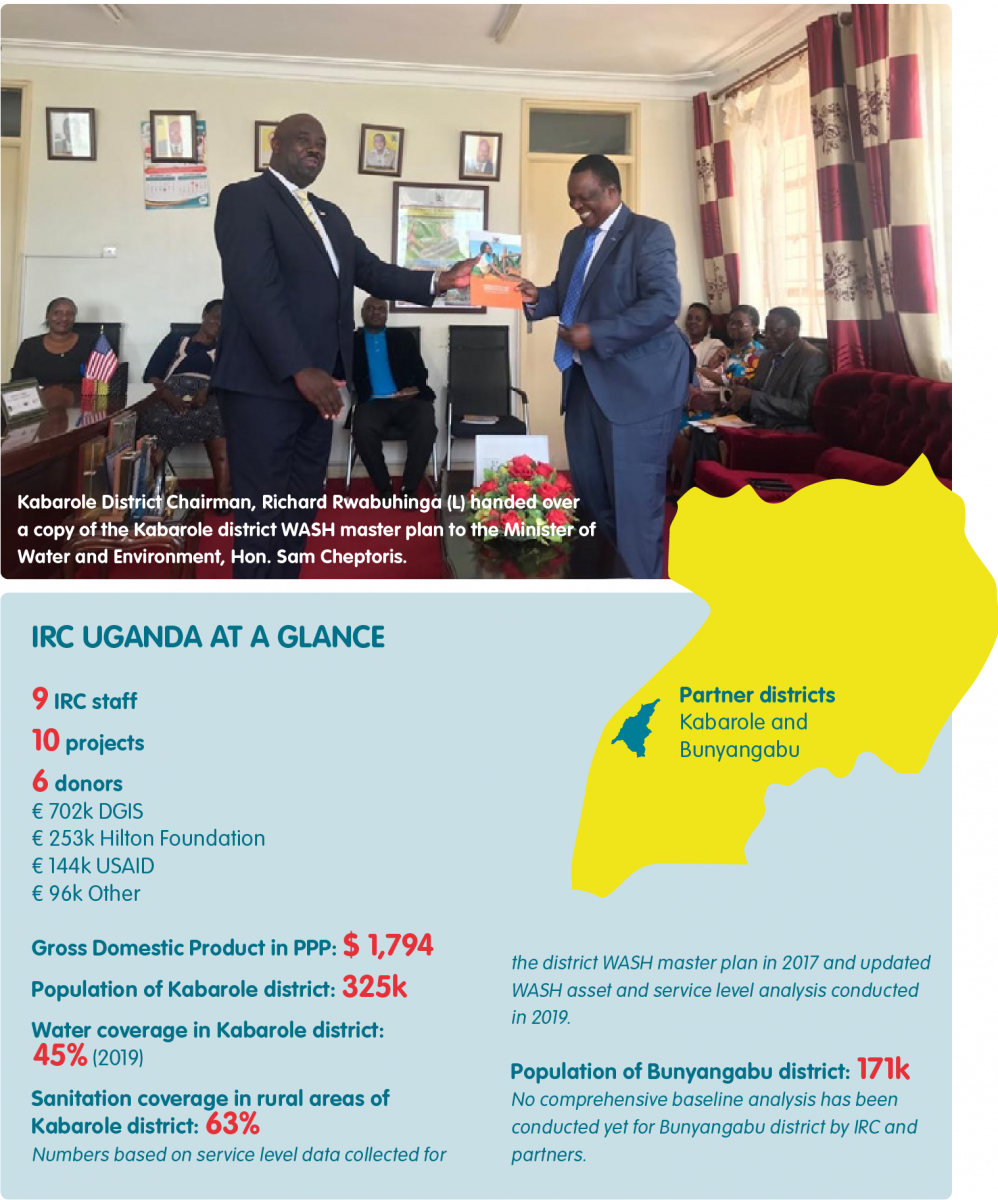What impact did we have in our focus countries in 2019? Sharing highlights from IRC’s Annual Report.
Published on: 13/07/2020

"Provision of WASH services takes more than just effective management of natural resources. We need the right infrastructure, robust institutions, implementable laws, effective planning, financing and monitoring and learning." - Hon. Richard Rwabuhinga, Chairman LCV Kabarole district at the WASH master plan launch
Achieving universal access to WASH by 2030 is central to Uganda’s Vision 2040 – transformation into an upper middle-income country. Our team has worked with Kabarole district since 2010 through capacity building, planning and budgeting to strengthen WASH systems that provide sustainable services for all. The launch of the Kabarole district WASH master plan in February 2019 was therefore a great stride towards realising WASH access for all by 2030.
The WASH master plan is already helping Kabarole district leaders and their partners to identify and plan coordinated responses to institutional, policy and budget gaps towards ensuring access to safe water sanitation and hygiene for all. More people now have access to at least basic level drinking water. While the 2019 service level survey revealed that most community management structures (77%) were inactive, the learning from this process will help improve the model.
This success in Kabarole district has inspired the neighbouring new district, Bunyangabu to embrace the WASH systems approach. We started the process to support this district with developing its roadmap towards achieving SDG 6. The sub-county chiefs and town clerks have already partnered with IRC to repair broken water infrastructure.
The Conrad N. Hilton Foundation partnership enabled increased collaboration with the US Centers for Disease Prevention and Control to gather data and provide handwashing facilities and alcohol-based sanitisers to 40 health care facilities in Kabarole. Helping to improve hand washing at critical times as well as the district’s response to the COVID-19 pandemic in 2020.
Under the Watershed strategic partnership, the highlight of our advocacy work was the Wottazela radio campaign in Fort Portal, Kabarole district. The campaign ran in collaboration with local Radio Jubilee and raised awareness about governance and the management of WASH services and water resources. We engaged 1,000 citizens, transforming them from passive listeners to active participants by facilitating an informed and interactive debate.
At national level, we worked with the Ministry of Water and Environment. Together, we organised a seminar on operation and maintenance (O&M) and a learning visit on the pay-as-you-fetch model in Kabarole district. These contributed towards the development of the new National O&M Framework.
We collaborated with WHO and WSSCC to support the development of the draft Sanitation Policy Assessment Tool and finalisation of a Sanitation Policy Case Study. With support from WSSCC, we continued to work with the Menstrual Health Coalition to promote Menstrual Health Management and the national handwashing initiative.